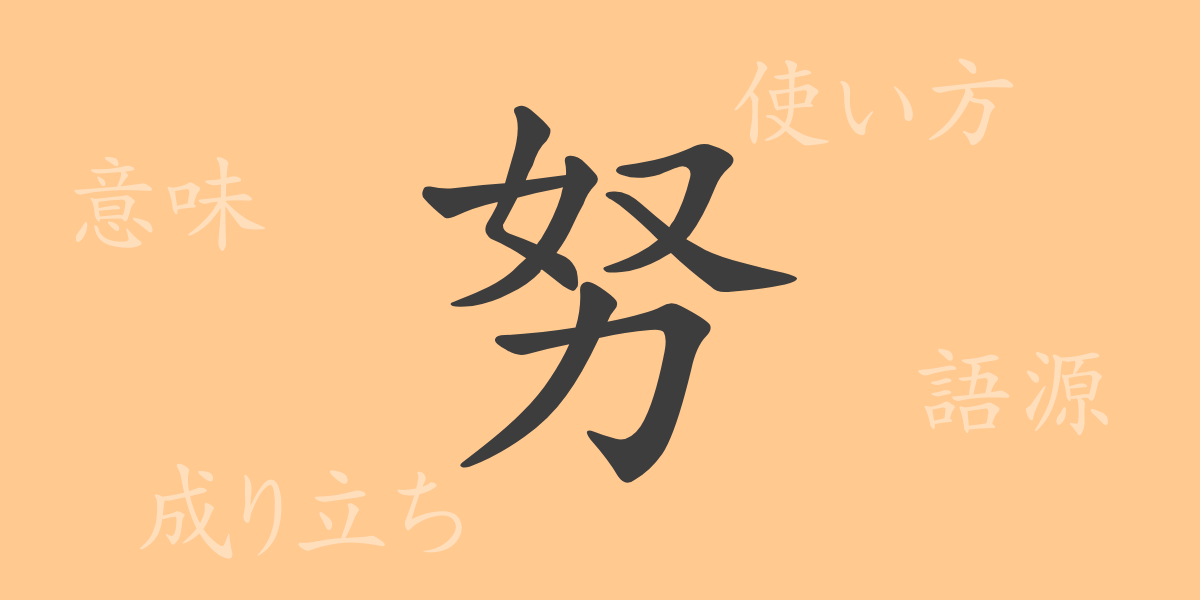The rich history and complex structure of Japanese writing are epitomized by Kanji, which is central to Japan’s cultural expression. From everyday communication to education and business, Kanji plays an indispensable role in our lives. This article focuses on the commonly used Kanji ‘努(ど)’, exploring its allure and applications. We invite you to understand the unique power of this character and its role in the Japanese language, leading to a richer world of expression.
Origins of ‘努(ど)’
The Kanji ‘努’ dates back to ancient China, originally depicting a slave pushing a heavy object, combining the radical for ‘power’ (‘力’) and the phonetic component ‘奴’. This symbol evolved to mean exerting effort or striving, maintaining its essential meaning over centuries, even as its form changed to the current style.
Meaning and Usage of ‘努(ど)’
‘努’ fundamentally means to exert effort or to endeavor. It is used predominantly to describe the concept of striving or making an effort to achieve something, often reflecting an individual’s internal mental state and underscoring the importance of working towards goals.
Readings, Stroke Count, and Radical of ‘努(ど)’
‘努’ is essential in the written Japanese language, encompassing basic elements in its readings and structure:
- Readings: On’yomi ‘ド’, Kun’yomi ‘つと(める)’
- Stroke count: 7 strokes
- Radical: ‘力(りきづくり)’ – power
Phrases, Idioms, and Proverbs Using ‘努(ど)’
The Kanji ‘努’ enriches Japanese expressions, evidenced in various idioms and phrases:
- 努力(どりょく): To make an effort to achieve something.
- 努力家(どりょくか): A person who consistently strives and never slackens.
- 努力賞(どりょくしょう): An award given to someone for their notable efforts.
- 努力不足(どりょくぶそく): Insufficient efforts.
- 努力の甲斐がある(どりょくのかいがある): To see good results as a reward for one’s efforts.
Conclusion on ‘努(ど)’
The Kanji ‘努’ strongly symbolizes the concept of effort, from its formation to its meanings and usage in the Japanese language. By understanding and appropriately using this character, we can express our strong will and dedication towards achieving our goals. Grasping the role of ‘努’ in the Japanese language enriches our communication, allowing for deeper and more meaningful interactions.

























